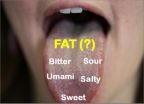(Press-News.org) The perception that women are scarce leads men to become impulsive, save less, and increase borrowing, according to new research from the University of Minnesota's Carlson School of Management.
"What we see in other animals is that when females are scarce, males become more competitive. They compete more for access to mates," says Vladas Griskevicius, an assistant professor of marketing at the Carlson School and lead author of the study. "How do humans compete for access to mates? What you find across cultures is that men often do it through money, through status and through products."
To test their theory that the sex ratio affects economic decisions, the researchers had participants read news articles that described their local population as having more men or more women. They were then asked to indicate how much money they would save each month from a paycheck, as well as how much they would borrow with credit cards for immediate expenditures. When led to believe women were scarce, the savings rates for men decreased by 42 percent. Men were also willing to borrow 84 percent more money each month.
In another study, participants saw photo arrays of men and women that had more men, more women, or were neutral. After looking at the photographs, participants were asked to choose between receiving some money tomorrow or a larger amount in a month. When women were scarce in the photos, men were much more likely to take an immediate $20 rather than wait for $30 in a month.
According to Griskevicius, participants were unaware that sex ratios were having any effect on their behavior. Merely seeing more men than women automatically led men to simply be more impulsive and want to save less while borrowing more to spend on immediate purchases.
"Economics tells us that humans make decisions by carefully thinking through our choices; that we're not like animals," he says. "It turns out we have a lot in common with other animals. Some of our behaviors are much more reflexive and subconscious. We see that there are more men than women in our environment and it automatically changes our desires, our behaviors, and our entire psychology."
"The Financial Consequences of Too Many Men: Sex Ratio Effects on Savings, Borrowing, and Spending" will be published this month in the Journal of Personality and Social Psychology. Co-authors of the study include Joshua Tybur (VU University Amsterdam), Joshua M. Ackerman (M.I.T.), Andrew Delton and Theresa Robertson (University of California, Santa Barbara), and Andrew E. White (Arizona State University).
Sex Ratios Affect Expectations of Women
While sex ratios do not influence the financial choices women make, they do shape women's expectations of how men should spend their money when courting. After reading a news article informing women that there are more men than women, women expected men to spend more on dinner dates, Valentine's gifts, and engagement rings.
"When there's a scarcity of women, women felt men should go out of their way to court them," adds Griskevicius.
In a male-biased environment, men also expected they would need to spend more in their mating efforts.
Population Data Supports Research Findings
In addition to conducting laboratory experiments, the researchers reviewed archival data and calculated the sex ratios of more than 120 U.S. cities. Consistent with their hypothesis, communities with an abundance of single men showed greater ownership of credit cards and had higher debt levels.
One striking example was found in two communities located less than 100 miles apart. In Columbus, Ga., where there are 1.18 single men for every single woman, the average consumer debt was $3,479 higher than it was in Macon, Ga., where there were 0.78 single men for every woman.
Research Implications for Marketers and Society
Whereas previous research has found that merely seeing an attractive woman in advertising would make a man more aggressive or make a man more interested in conspicuously consuming, "The Financial Consequences of Too Many Men" study suggests it may not be that simple. According to the findings, whether a woman is alone or surrounded by many or few men can have a great impact on the reaction it elicits.
Griskevicius says the effects of sex ratios go beyond marketing and influence all sorts of behavior. He cites other studies showing the strong correlation between male-biased sex ratios and aggressive behavior.
"We're just scratching the tip of the iceberg when it comes to financial behavior," says Griskevicius. "One of the troubling implications of sex ratios for the world in general is that it's about more than just money. It's about violence and survival."
INFORMATION:
About the Carlson School of Management
Established in 1919 and based in the Twin Cities of Minneapolis and St. Paul, the Carlson School of Management at the University of Minnesota is a recognized leader in business education and research. Its focus on experiential learning, international education and maintaining strong ties to the business community exemplify the school's commitment to excellence. More information about the school can be found at www.carlsonschool.umn.edu.
A scarcity of women leads men to spend more, save less
University of Minnesota research finds sex ratios influence financial decisions
2012-01-13
ELSE PRESS RELEASES FROM THIS DATE:
Receptor for tasting fat identified in humans
2012-01-13
Why do we like fatty foods so much? We can blame our taste buds.
Our tongues apparently recognize and have an affinity for fat, according to researchers at Washington University School of Medicine in St. Louis. They have found that variations in a gene can make people more or less sensitive to the taste of fat.
The study is the first to identify a human receptor that can taste fat and suggests that some people may be more sensitive to the presence of fat in foods. The study is available online in the Journal of Lipid Research.
Investigators found that people with ...
Research team discovers genes and disease mechanisms behind a common form of muscular dystrophy
2012-01-13
SEATTLE – Continuing a series of groundbreaking discoveries begun in 2010 about the genetic causes of the third most common form of inherited muscular dystrophy, an international team of researchers led by a scientist at Fred Hutchinson Cancer Research Center has identified the genes and proteins that damage muscle cells, as well as the mechanisms that can cause the disease. The findings are online and will be reported in the Jan. 17 print edition of the journal Developmental Cell.
The discovery could lead to a biomarker-based test for diagnosing facioscapulohumeral muscular ...
Planets around stars are the rule rather than the exception
2012-01-13
LIVERMORE, Calif. --There are more exoplanets further away from their parent stars than originally thought, according to new astrophysics research.
In a new paper appearing in the Jan. 12 edition of the journal, Nature, astrophysicist Kem Cook as part of an international collaboration, analyzed microlensing data that bridges the gap between a recent finding of planets further away from their parent stars and observations of planets extremely close to their parent star. The results point to more planetary systems resembling our solar system rather than being significantly ...
ONR's information discovery and sharing environment undergoes 'Marathon' experiment
2012-01-13
The ability to catch international smugglers and terrorists just got upgraded with a Jan. 12 demonstration of collaborative software funded by the Office of Naval Research (ONR).
The Mission-Focused Autonomy (MFA) program was put into practice for the Joint Interagency Task Force (JIATF) South in Key West, Fla., during an exercise dubbed "Marathon." The collaborative information discovery and knowledge-sharing tools sift through government agency databases to support efforts by federal law enforcement for information on foreign nationals intent on harming national security ...
Largest bird alters its foraging due to climate change
2012-01-13
Paris/ Leipzig. Wandering albatrosses have altered their foraging due to changes in wind fields in the southern hemisphere during the last decades. Since winds have increased in intensity and moved to the south, the flight speed of albatrosses increased and they spend less time foraging. As a consequence, breeding success has improved and birds have gained 1 kilogram. These are the results of the study of an international research team published in the latest issue of the Science journal. However, these positive consequences of climate change may last short if future wind ...
Graphene quantum dots: The next big small thing
2012-01-13
A Rice University laboratory has found a way to turn common carbon fiber into graphene quantum dots, tiny specks of matter with properties expected to prove useful in electronic, optical and biomedical applications.
The Rice lab of materials scientist Pulickel Ajayan, in collaboration with colleagues in China, India, Japan and the Texas Medical Center, discovered a one-step chemical process that is markedly simpler than established techniques for making graphene quantum dots. The results were published online this month in the American Chemical Society's journal Nano ...
Deaf sign language users pick up faster on body language
2012-01-13
Deaf people who use sign language are quicker at recognizing and interpreting body language than hearing non-signers, according to new research from investigators at UC Davis and UC Irvine.
The work suggests that deaf people may be especially adept at picking up on subtle visual traits in the actions of others, an ability that could be useful for some sensitive jobs, such as airport screening.
"There are a lot of anecdotes about deaf people being better able to pick up on body language, but this is the first evidence of that," said David Corina, professor in the UC ...
How the brain routes traffic for maximum alertness
2012-01-13
A new UC Davis study shows how the brain reconfigures its connections to minimize distractions and take best advantage of our knowledge of situations.
"In order to behave efficiently, you want to process relevant sensory information as fast as possible, but relevance is determined by your current situation," said Joy Geng, assistant professor of psychology at the UC Davis Center for Mind and Brain.
For example, a flashing road sign alerts us to traffic merging ahead; or a startled animal might cue you to look out for a hidden predator.
When concentrating on a specific ...
Breakthrough model reveals evolution of ancient nervous systems through seashell colors
2012-01-13
PITTSBURGH—Determining the evolution of pigmentation patterns on mollusk seashells—which could aid in the understanding of ancient nervous systems—has proved to be a challenging feat for researchers. Now, however, through mathematical equations and simulations, University of Pittsburgh and University of California, Berkeley, researchers have used 19 different species of the predatory sea snail Conus to generate a model of the pigmentation patterns of mollusk shells.
"There is no evolutionary record of nervous systems, but what you're seeing on the surface of seashells ...
Study finds chlorophyll can help prevent cancer - but questions traditional research methods
2012-01-13
CORVALLIS, Ore. – A recent study at Oregon State University found that the chlorophyll in green vegetables offers protection against cancer when tested against the modest carcinogen exposure levels most likely to be found in the environment.
However, chlorophyll actually increases the number of tumors at very high carcinogen exposure levels.
Beyond confirming the value of chlorophyll, the research raises serious questions about whether traditional lab studies done with mice and high levels of toxic exposure are providing accurate answers to what is a real health risk, ...
LAST 30 PRESS RELEASES:
Mayo Clinic study finds single dose of non-prescribed Adderall raises blood pressure and heart rate in healthy young adults
Engineered immune cells show promise against brain metastases in preclinical study
Improved EV battery technology will outmatch degradation from climate change
AI cancer tools risk “shortcut learning” rather than detecting true biology
Painless skin patch offers new way to monitor immune health
Children with poor oral health more often develop cardiovascular disease as adults
GLP-1 drugs associated with reduced need for emergency care for migraine
New knowledge on heritability paves the way for better treatment of people with chronic inflammatory bowel disease
Under the Lens: Microbiologists Nicola Holden and Gil Domingue weigh in on the raw milk debate
Science reveals why you can’t resist a snack – even when you’re full
Kidney cancer study finds belzutifan plus pembrolizumab post-surgery helps patients at high risk for relapse stay cancer-free longer
Alkali cation effects in electrochemical carbon dioxide reduction
Test platforms for charging wireless cars now fit on a bench
$3 million NIH grant funds national study of Medicare Advantage’s benefit expansion into social supports
Amplified Sciences achieves CAP accreditation for cutting-edge diagnostic lab
Fred Hutch announces 12 recipients of the annual Harold M. Weintraub Graduate Student Award
Native forest litter helps rebuild soil life in post-mining landscapes
Mountain soils in arid regions may emit more greenhouse gas as climate shifts, new study finds
Pairing biochar with other soil amendments could unlock stronger gains in soil health
Why do we get a skip in our step when we’re happy? Thank dopamine
UC Irvine scientists uncover cellular mechanism behind muscle repair
Platform to map living brain noninvasively takes next big step
Stress-testing the Cascadia Subduction Zone reveals variability that could impact how earthquakes spread
We may be underestimating the true carbon cost of northern wildfires
Blood test predicts which bladder cancer patients may safely skip surgery
Kennesaw State's Vijay Anand honored as National Academy of Inventors Senior Member
Recovery from whaling reveals the role of age in Humpback reproduction
Can the canny tick help prevent disease like MS and cancer?
Newcomer children show lower rates of emergency department use for non‑urgent conditions, study finds
Cognitive and neuropsychiatric function in former American football players
[Press-News.org] A scarcity of women leads men to spend more, save lessUniversity of Minnesota research finds sex ratios influence financial decisions


